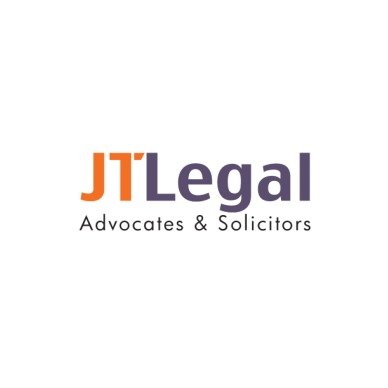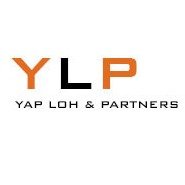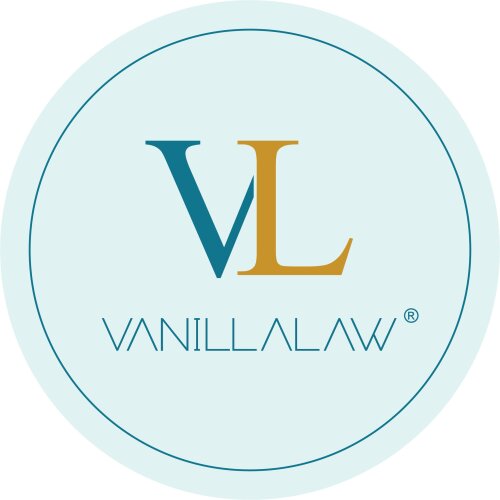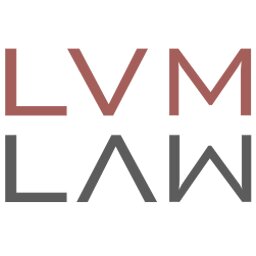Best Information Technology Lawyers in Singapore
Share your needs with us, get contacted by law firms.
Free. Takes 2 min.
Or refine your search by selecting a city:
List of the best lawyers in Singapore
Singapore Information Technology Legal Articles
Browse our 1 legal article about Information Technology in Singapore written by expert lawyers.
- Personal Data Protection Act (PDPA): Introduction to PDPA
- In recent years, the Personal Data Protection Act 2012 (“PDPA”) of Singapore has been a trending topic for discussion, especially due to the trend of storing valuable personal data online. The PDPA is crucial as it protects the personal data for individuals while recognising the need for organisations to “collect,... Read more →
About Information Technology Law in Singapore
Information Technology (IT) is a crucial part of Singapore’s economy, emphasizing innovation and efficiency. Singapore has positioned itself as a leading tech hub in Asia, attracting numerous global IT companies. As a result, the country has established a comprehensive legal framework to govern technological and digital environments, ensuring security, privacy, and fair use of information and communication technologies. IT law in Singapore encompasses various aspects including data protection, intellectual property rights, cybersecurity, and electronic transactions.
Why You May Need a Lawyer
There are several instances where individuals and businesses may require legal assistance in the field of Information Technology:
- Intellectual Property Disputes: Protecting and enforcing IP rights for software, applications, and other digital content.
- Data Protection and Privacy: Navigating the Personal Data Protection Act (PDPA) to ensure compliance in handling personal data.
- Cybersecurity Incidents: Addressing legal obligations and liabilities following a data breach or cyber attack.
- Contractual Agreements: Drafting and negotiating IT contracts, service agreements, and licensing arrangements.
- E-commerce Regulations: Ensuring compliance with regulations governing online transactions and consumer protection.
- Regulatory Compliance: Understanding and adhering to industry-specific regulations and standards.
Local Laws Overview
Singapore has a robust legal framework governing Information Technology. Key aspects include:
- Personal Data Protection Act (PDPA): Regulates the collection, use, and disclosure of personal data, ensuring privacy and data protection for individuals.
- Electronic Transactions Act: Provides legal recognition of electronic contracts and signatures, facilitating secure electronic commerce.
- Computer Misuse and Cybersecurity Act: Outlines offenses related to unauthorized access, modification, or misuse of computer systems.
- Copyright Act: Offers protection to IT-related intellectual property, including software, databases, and digital content.
- Cybersecurity Act (2018): Establishes a framework for safeguarding critical information infrastructure and promotes cybersecurity awareness.
Frequently Asked Questions
What is the Personal Data Protection Act (PDPA)?
The PDPA is a comprehensive law governing the collection, use, disclosure, and care of personal data. It ensures that personal data is properly managed and protected, giving individuals greater control and rights regarding their data.
How does Singapore handle intellectual property rights for software?
In Singapore, software is protected under the Copyright Act. This legislation provides creators with exclusive rights to use and distribute their creations, allowing them to monetize and control their software applications.
What legal steps should I take if my business experiences a data breach?
In the event of a data breach, it is critical to perform a thorough investigation, notify the relevant authorities and affected individuals as required by PDPA, and implement measures to prevent future incidents. Legal consultation may be necessary to address potential liabilities and regulatory compliance.
Are electronic signatures legally binding in Singapore?
Yes, the Electronic Transactions Act recognizes electronic signatures as legally binding, provided certain criteria are met to ensure the intent and integrity of the signature.
What is the significance of the Cybersecurity Act (2018)?
The Cybersecurity Act establishes measures for protecting critical information infrastructure against cyber threats. It mandates organizations in essential sectors to adopt minimum cybersecurity standards and practices.
Do I need a lawyer to draft an IT service agreement?
While not legally required, it is advisable to engage a lawyer when drafting an IT service agreement. Lawyers can ensure that the terms protect your interests, comply with the law, and address potential risks or disputes.
What should I consider in an IT outsourcing contract?
Key considerations include the scope of services, performance standards, data protection obligations, intellectual property rights, confidentiality, and termination clauses. Legal advice can help in negotiating a fair and clear contract.
How do I protect my digital product's intellectual property internationally?
To protect your digital products internationally, consider applying for patents, copyrights, or trademarks in the jurisdictions of interest. It's beneficial to consult with legal experts specializing in international IP law.
What are my obligations under the PDPA as a business owner?
As a business owner, you must ensure that personal data is collected, used, and disclosed in compliance with the PDPA. This includes obtaining consent, implementing data protection policies, and responding to data access or correction requests.
How can I ensure that my e-commerce business complies with Singapore’s regulations?
Compliance involves adhering to consumer protection laws, securing electronic transactions, respecting privacy laws, and ensuring transparency in business communications. Consulting with legal professionals can streamline the process.
Additional Resources
For more information or assistance, consider these resources:
- Personal Data Protection Commission (PDPC): Offers guidelines and resources on data protection and compliance.
- Infocomm Media Development Authority (IMDA): Provides support and frameworks for digital and IT transformation in Singapore.
- Intellectual Property Office of Singapore (IPOS): Guides on IP applications, registrations, and strategies.
- Singapore Academy of Law: Resource for understanding legal practices and professional training.
Next Steps
If you require legal assistance in Information Technology, start by identifying the specific area in which you need help-be it data protection, IP rights, or contract issues. Seek a consultation with a lawyer who specializes in IT law in Singapore. They can provide guidance tailored to your specific situation, ensuring your IT operations are legally sound and compliant with local regulations.
Lawzana helps you find the best lawyers and law firms in Singapore through a curated and pre-screened list of qualified legal professionals. Our platform offers rankings and detailed profiles of attorneys and law firms, allowing you to compare based on practice areas, including Information Technology, experience, and client feedback.
Each profile includes a description of the firm's areas of practice, client reviews, team members and partners, year of establishment, spoken languages, office locations, contact information, social media presence, and any published articles or resources. Most firms on our platform speak English and are experienced in both local and international legal matters.
Get a quote from top-rated law firms in Singapore — quickly, securely, and without unnecessary hassle.
Disclaimer:
The information provided on this page is for general informational purposes only and does not constitute legal advice. While we strive to ensure the accuracy and relevance of the content, legal information may change over time, and interpretations of the law can vary. You should always consult with a qualified legal professional for advice specific to your situation.
We disclaim all liability for actions taken or not taken based on the content of this page. If you believe any information is incorrect or outdated, please contact us, and we will review and update it where appropriate.
Browse information technology law firms by city in Singapore
Refine your search by selecting a city.














